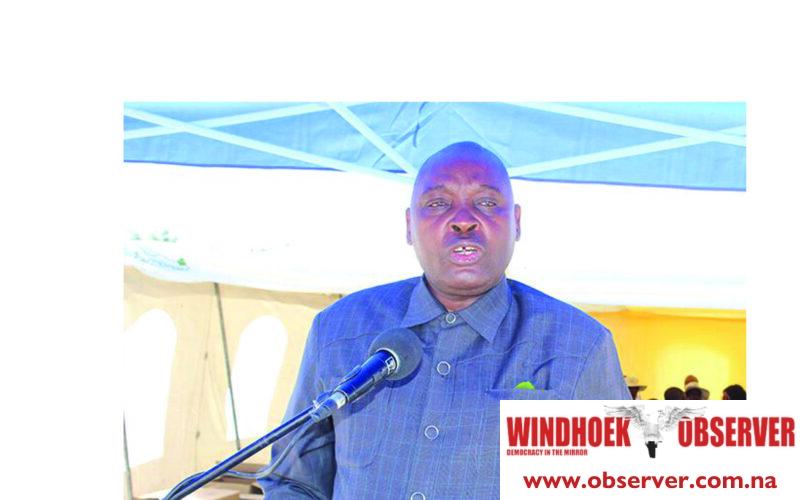Hertta-Maria Amutenja
Urban and Rural Development minister James Sankwasa has urged local authorities to fast-track land preparation and allocation to meet the government’s informal settlement upgrading targets.
Speaking at a land handover ceremony in Outapi on Friday, his advisor Boniface Mutumba delivered the minister’s remarks, saying the ministry was financing land development but expected councils to align their execution plans with central government requirements.
The ceremony marked the handover of Land Hold Titles to residents under the Flexible Land Tenure System (FLTS), aimed at providing secure tenure for urban residents living in informal settlements.
Sankwasa said the system was created to give low-income Namibians access to land and address past land injustices.
“Land Hold Titles that are about to be handed over to the beneficiaries are viewed in terms of the tenure architecture types of this system as providing a secure tenure for people without rights to the land they occupy,” he said.
The event, he added, not only celebrated land ownership but also focused on service delivery and development.
According to him, the ministry is engaged in a “vigorous strategic preparation of urban land” for the purposes of building and creating sustainable, functional, and equitable human environments by ensuring access to infrastructure, utilities, and public facilities.
He said the ministry was accelerating land assembly across local authorities, financing land development in informal settlement areas, and encouraging the distribution of plots to informal settlers.
Sankwasa acknowledged that local authorities face social and environmental challenges linked to rapid urbanisation but warned that the central government will continue funding only those councils that meet its requirements.
“A few others may be added to the list in an event where execution plans by local authorities cited in this statement do not conform to the central government set requirements,” he said.
The ministry plans to roll out and fund an Informal Settlement Upgrading and Sanitation Project over a five-year period starting in the 2025/26 financial year and ending in 2029/30.
The first phase will cover the Windhoek and Walvis Bay municipalities, as well as the Keetmanshoop, Rundu, and Oshakati town councils.
Sankwasa said the ministry’s broader mandate was to regulate land use and ensure orderly growth.
“To ensure orderly growth and efficient land utilisation and urban land management in Namibia, the Ministry of Urban and Rural Development continues to exert efforts toward effective regulation of land use, development and management of density issues in local authority areas,” he said.
He told the gathering that the ministry viewed the FLTS as a tool to restore dignity for Namibians who had long lived without secure land tenure. He said the titles reflected the government’s commitment to transform land access in urban areas.
The system was introduced to create new tenure types that respond to the needs of informal settlement residents, many of whom lack proof of ownership despite occupying land for years.
Sankwasa said that while the government was taking the lead, the success of the initiative depended on how councils carried out their roles.




